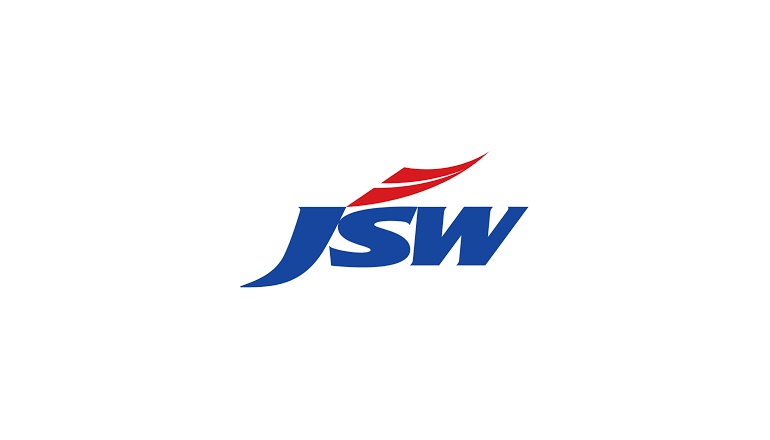Two NGOs who extensively studied financial instruments in ESG have shockingly revealed rampant greenwashing in the US and Europe.
ESG funds with sustainability-related names have invested around EUR 38 billion in fossil fuel companies with expansion projects or no Paris-aligned coal phase-out plans, according to NGOs.
As of May 21, 2025, funds with such companies have two options: sell their instruments or remove sustainability terms, with the former potentially having a positive climate impact.
NGOs Urgewald and Facing Finance have discovered significant greenwashing in European ESG funds. The NGOs analyzed more than 14,000 ESG funds and discovered that over one-third of European ESG funds (4,792 funds) invested over EUR 123 billion in companies promoting fossil fuel expansion or lacking a credible Paris-aligned coal phase-out plan.
Six major oil and gas companies, TotalEnergies, Shell, ExxonMobil, Chevron, Eni, and BP, have invested €23.5 billion in climate-related expansion plans, primarily in Mozambique. European ESG funds also invested €4.5 billion in coal companies, with Glencore and its subsidiaries leading the list with €770 million.
| The violators | EU Investment Companies’ Deepest Investments in Coal, Oil, and Gas |
| • Six major oil and gas companies, TotalEnergies, Shell, ExxonMobil, Chevron, Eni, and BP, invested EUR 23.5 billion in oil and gas expansion plans. | • JPMorgan Chase leads with EUR 10.2 billion investment across 105 funds. |
| • TotalEnergies (EUR 8.1 billion) is the largest investor, expanding in frontier countries like Mozambique. | • Deutsche Bank subsidiary DWS follows with EUR 8.7 billion across 178 funds. |
| • The company’s LNG project in Cabo Delgado violates local communities’ human rights. | • BlackRock follows with EUR 8.3 billion across 188 funds. |
| • European ESG funds invested EUR 4.5 billion in coal companies, with Glencore and its subsidiaries leading with EUR 770 million. | • German Allianz ranks 6th with EUR 3.7 billion, followed by Swiss UBS in 7th place. |
Tapping the loopholes in ESMA guidelines:
The European Securities and Markets Authority (ESMA) has introduced new rules for the naming of ESG funds, marking a positive step forward.
However, the Urgewald and Facing Finance research reveals that out of 14,300 Article 8/9 funds examined, 9,420 are not covered by the new ESMA guideline due to the lack of ESG or sustainability-related terms.
The new ESMA guidelines will affect 43% of fossil fuel investments, requiring most to sell or change names by May 21, 2025, while the remaining 57 percent will remain unchanged.
The porous guideline’s consequences are evident in ESG funds’ investments in oil and gas majors. New ESMA requirements ensure up to EUR 17.1 billion, or two-thirds of total green investments in TotalEnergies, Shell, ExxonMobil, Chevron, Eni, and BP, are safe.
The EU market’s investment companies are primarily involved in coal, oil, and gas with their Article 8 and 9 funds. JPMorgan Chase leads with a EUR 10.2 billion investment volume, followed by Deutsche Bank’s DWS and BlackRock. German Allianz and Swiss UBS follow with EUR 3.7 billion and 133 funds, respectively.
Similarly, BlackRock leads in fossil investments with EUR 6.4 billion in 111 funds, followed by Crédit Agricole from France with EUR 3.6 billion, Swiss UBS with EUR 2.8 billion, Northern Trust and DWS with EUR 2.3 billion.
Unified approach to fossil fuel investments:
National supervisory authorities lack a unified approach to classifying and interpreting terms like “children” and “prudence” in relation to fossil fuel investments. Some instances:
• No unified approach for national supervisory authorities to classify and interpret terms like “children” and “prudence” in fossil fuel investments.
• Funds like “Fonditalia 4 Children” and “Eurizon Fund—Absolute Prudent” have invested in gas-fired power expansion projects.
• “Eurizon Fund—Absolute Prudent” invested in Glencore and EDP Energias de Portugal, both growing their gas-fired power plant fleets.
Researchers’ say:
Julia Dubslaff, Finance Researcher, Urgewald, said, “Companies that pursue fossil fuel expansion projects in the midst of a climate crisis are jeopardizing our future. Their presence in ESG funds violates the very concept of sustainability. The presence of fossil fuel expansionists in over one-third of the funds that claim environmental or social traits misleads climate-conscious investors. The European legislator must set clear rules for all ESG funds and put an end to this travesty.”
Fund managers should divest fossil fuel holdings to enhance reputation, demonstrate climate-conscious products, and signal to developers that their business harms the climate, people, and the planet, she said.
Frederike Potts, Financial Analyst, Facing Finance, said, “Retail investors in particular can hardly see through the ESG jungle and often have no idea in what dirty companies they are investing their money. The ESMA guidelines at least provide a remedy for funds with sustainability and environmental terms. However, fossil fuel investments in other ESG funds must also be curbed. It is beyond reason why funds with the term ‘transition’ in their name are allowed to keep investments in companies that are slowing down the transformation of our energy systems and pursuing fossil fuel expansion projects. If these loopholes are not closed, it will be a missed opportunity for consumer protection in Europe.”
Fiona Hauke, Expert, Financial Regulation, Urgewald, said, “The EU should show more ambition in regulating funds with ESG claims. The SFDR overhaul must cut through the current sustainability jungle by providing clear guidelines. For all ‘green’ investments, strict fossil fuel exclusions should apply. Similarly, it should be a no-brainer that so-called transition funds need to exclude companies that are developing new fossil fuel expansion projects and that have no Paris-aligned coal phase-out plan. At a time when the US president is waging a war on sustainability, the EU should step up to the plate and strengthen this future-oriented sector.”
Conclusion and disclaimer:
The European Commission plans to revise the Sustainable Finance Disclosure Regulation (SFDR) by 2025, which currently lacks minimum requirements for fossil fuel investments.
A study analyzed 14,291 funds under the EU Sustainable Finance Disclosure Regulation (SFDR) in a European country, including 13,507 actively managed funds and 784 ETFs. Microsoft’s investments in a gas-fired power plant for an Irish data center were excluded. The analysis found 2,078 out of 4,792 fund names contain ESMA-relevant terms restricting fossil fuel investments. 2,411 fund names do not contain any ESMA-relevant terms, and 69 funds use terms that could impact fossil investments.











